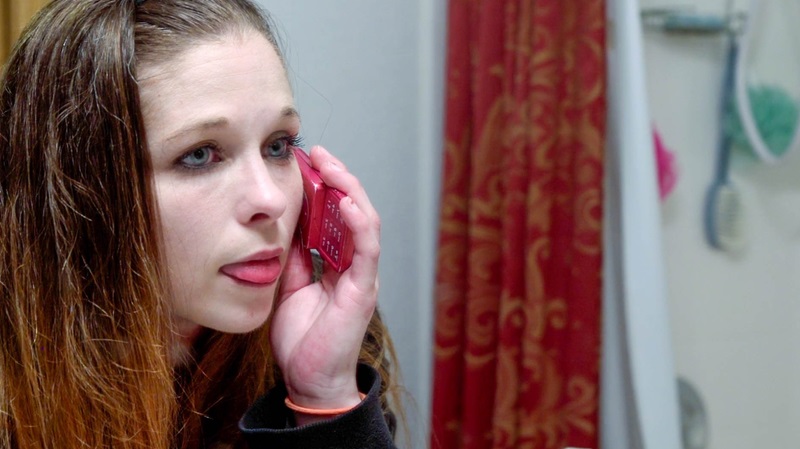Sweetheart Deal (Levine and Miller, 2022)
To call Sweetheart Deal a tough watch is to simultaneously say nothing and everything. It is the least a critic can say before checking it off the “to do” list of reviews that need to be written, but also maybe the most a critic can say without standing pushing the world of prostitution and drug addiction away and retreating to the safety of aesthetic pronouncements and artistic judgments.
I have often found myself wondering why films of marginalized people — beggars, addicts, prostitutes — can induce so much empathy while films that document those people in real life may not induce the same emotions. Addiction is often prettified at the movies, and a Hollywood actress in ratty clothes and bad makeup too often conveys some of the desperation of real-life poverty without conveying the hard-edged despair that sinks in after weeks, months, or years in the environment that cast and crew are visiting for a season.
That’s not the problem here. In Levine and Miller’s documentary, we aren’t just told the horror stories…we see the withdrawals, the abscesses, the scars. The camera doesn’t follow them into the sex acts themselves, and the johns remain anonymous figures behind the reflective windows of SUVs that roam the Seattle highways like predators waiting for the weakest of the sheep to take a single step away from the herd. But we see the preparations — mostly numbing the soul and body with heroin — and the aftermath — mostly numbing the soul and body with heroin. The likelihood of a Hollywood happy ending seems so remote we don’t even bother to hope for one, maybe because the film’s subjects admit they have stopped looking for one either. “I hate being a prostitute. I just fucking hate it,” says Christine, bluntly. Addiction is nearly impossible to overcome not because heroin makes you feel better, another woman explains, but because prostitution makes you feel so bad that you don’t think you can survive without the relief of opiates.
Part of the cruelty of the film is that we are introduced to the sex workers through a seemingly safe haven, a camper parked on Aurora Street and occupied by a grey-haired hippie promising hot chocolate, a clean bed, and a shoulder to cry on. But even this relief proves to be illusory. Early in the film, the camper’s owner, Laughan Dozier, admits frankly to a reporter that, sure, he has sex with most of the women too. The disconnect between that candid admission and the ways in which the women themselves speak about Dozier and his oasis of a refuge is laid bare early in the film. It hen it hangs over it like a gloomy shadow, an itchy scab, or a pesky thread that one is afraid to pull at lest the last remaining comfort offered to these victims is taken away.
A film like Sweetheart Deal makes standard marketing copy like “Fresh” or “Rotten” feel like inadequate descriptors. Did I “like” the film? No. Who the hell would enjoy watching people suffer for 100 minutes? Do I recommend the film? Sure, I guess. If we get to a point culturally, politically, or socially where we stop seeing the poorest and most marginalized among us as complex human beings, we risk losing our own humanity…and I sometimes fear, especially in election years, that we are more than halfway there already. None of the women in the film report growing up wanting to be prostitutes or drug addicts. Whether the reasons for starting down that path come across as comprehensible or not starts to feel irrelevant. Addictions, like diseases, care not for distinctions between bad luck and bad seeds. When we wait for the sick and lost to save and heal themselves before we show them respect and compassion, we make the world they are trying to escape to a little less distinguishable from the world they are trying to escape from.

